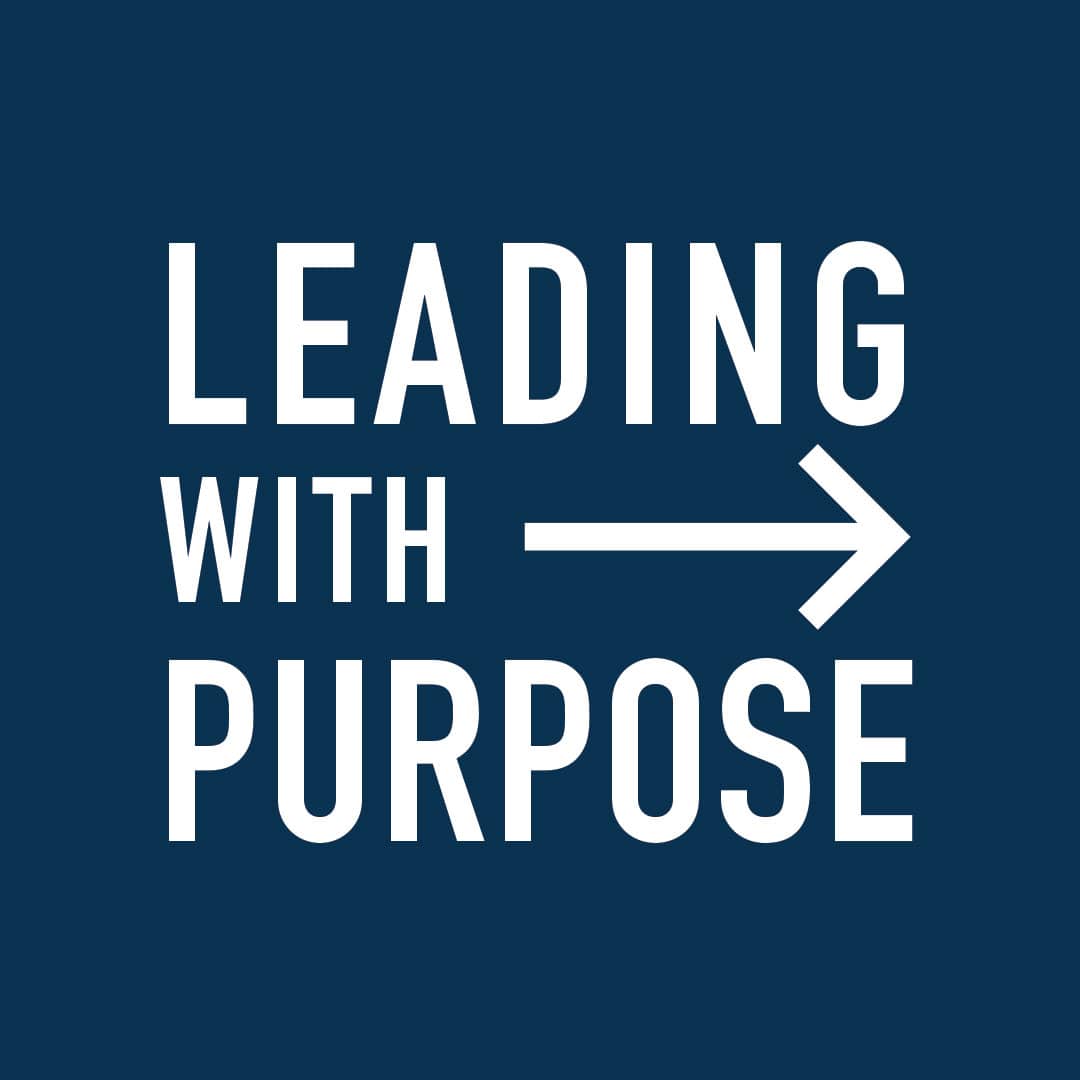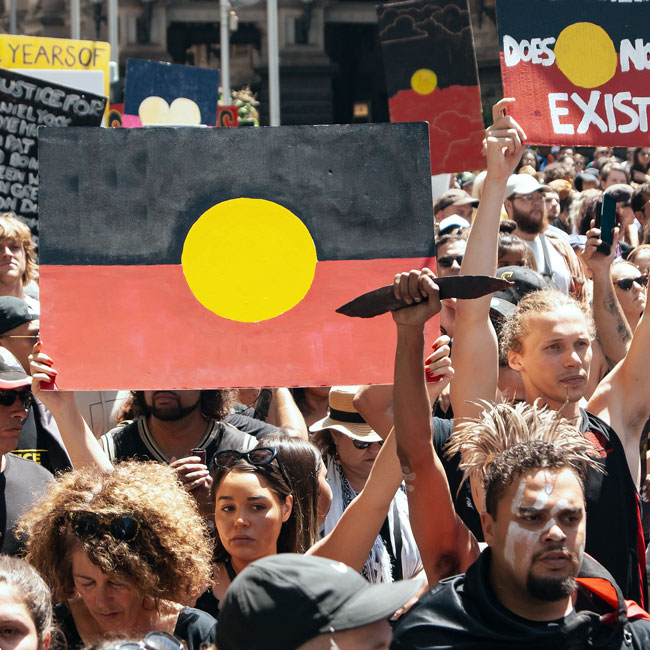Survivor bias: Is hardship the only way to show dedication?

Survivor bias: Is hardship the only way to show dedication?
Opinion + AnalysisBusiness + Leadership
BY Cris Parker 21 JAN 2025
Survivor bias assumes a direct link between sacrifice and success, which risks creating rigid and unhealthy work cultures.
Meeting with young people in business can give a fresh perspective on an organisation’s culture. They bring new ideas and a clear view, often unclouded by the blind spots experience can create and their expectations for work are shaped by a completely different set of values and norms compared to previous generations. From seeking work/life balance to finding meaningful work, these evolving values can sometimes clash with the more traditional belief that success requires long hours, stress, and personal sacrifice. At a recent Young Person’s Alliance gathering, this tension was brought to light and named: survivor bias.
Survivor bias happens when those who’ve faced tough paths to success believe that’s the only, or the best, way to achieve it. For example, many senior leaders in corporate environments, particularly women in male-dominated fields, often had to adopt intense work ethics and make personal sacrifices. Stories of working late into the night or juggling work while caring for sick kids are worn as badges of honour.
This can lead to an expectation, conscious or not, that younger employees should follow the same path: that sacrifice builds resilience and proves commitment. “I’m actually really proud of the struggles I had, it taught me a lot and it’s made me who I am today. You miss out on that if everything comes easy”, remarked a senior leader.
But is hardship the only way to show dedication? Or is this bias simply a product of individual survival stories?
In conversations I’ve had with finance or law workers, this bias shows up as an “all or nothing” mentality. Leaders who built their careers on 80-hour weeks might see flexibility or work-life balance as a lack of commitment. For instance, a senior female executive who climbed the ranks through relentless hours said “We just got on with it, no one was holding my hand.”
While this impacts both men and women, the pressure is often greater for young women trying to balance career and family. Survivor bias fosters a “suffer to succeed” culture, where personal sacrifice feels like a necessary step toward leadership.
Survivor bias can also create a scepticism that can create a lack of generosity in the workplace as about resourcing good mental health opportunities such as counselling or other support and even stagnating salaries as leaders reflect on their own experiences. “I remember when I went through that in my life, I got through it ok, and I didn’t have nearly the same help as there is today”, said a senior not-for-profit leader.
This mindset isn’t limited to the business sector. It’s seen in politics, sports, law, and even nursing. Serena Williams, for example, has spoken about the pressures she faced to prove her dedication to tennis after becoming a mother. Similarly, Julia Gillard’s time as Prime Minister is often framed as a testament to resilience, overlooking the intense sexism and personal costs she endured to succeed.
The danger of survivor bias lies in how it normalises burnout and undervalues the priorities of today’s workforce, like mental health and diverse perspectives. It assumes a direct link between sacrifice and success, which risks creating rigid and unhealthy work cultures.
It looks to ‘survivors’ as the standards people should aspire to but the word survival itself represents the limited few who have overcome the odds at all costs.
The first step to tackling survivor bias is awareness. By reflecting on how past struggles have shaped their expectations, leaders can start recognising this bias. Mentoring programs can also foster conversations across generations, allowing senior leaders to share their stories while understanding new ways of thinking about resilience and success.
Many organisations already have flexible and inclusive policies like parental leave, but true change requires a shift in mindset. Leaders can redefine hard work to focus on efficiency and impact rather than hours worked. This sends a clear signal that organisations value healthier, more innovative approaches.
As we engage with a new generation of professionals, especially young women, there’s an ethical responsibility to create paths that don’t equate suffering with commitment. By challenging survivor bias and embracing the values of today’s workforce, we can build cultures where resilience, fulfilment, and success go hand in hand.

Ethics in your inbox.
Get the latest inspiration, intelligence, events & more.
By signing up you agree to our privacy policy
You might be interested in…
Opinion + Analysis
Business + Leadership
Making the tough calls: Decisions in the boardroom
Opinion + Analysis
Business + Leadership
The near and far enemies of organisational culture
Opinion + Analysis
Business + Leadership, Relationships
Beyond the headlines of the Westpac breaches
LISTEN
Business + Leadership
Leading With Purpose
BY Cris Parker
Cris Parker is the former Head of The Ethics Alliance and a Director of the Banking and Finance Oath at The Ethics Centre.
Ask an ethicist: How to approach differing work ethics between generations?

Ask an ethicist: How to approach differing work ethics between generations?
Opinion + AnalysisBusiness + Leadership
BY Cris Parker 25 OCT 2024
I place a great deal of importance on the work I do, I enjoy my time in the office, and spending time with my team. However, lately I have noticed a younger colleague of mine is slacking off. They frequently take sick leave, or call in to work from home, and it often feels like there’s no urgency to their tasks. I am starting to feel a growing sense of resentment, as this hardly feels fair to me or my colleagues. Is there a way I can approach what I consider to be a poor work ethic?
It’s natural to feel a sense of unfairness and frustration when you’re putting in the effort and others don’t seem to be keeping pace. After all, work is called work for a reason – it’s not meant to be effortless.
Addressing the fairness of workload and the impact it has on the workforce is being explored more and more as automation is being used to assist with tasks and we find ourselves for the first time working alongside five different generations.
As our behaviours are driven by our values and it’s worth considering how different generations bring different values and attitudes to the workplace. Research into generational attitudes toward work provides some useful insights:
The Silent Generation (1928-1945) value loyalty, job stability, long-term careers and staying with one company for decades.
Baby Boomers (1946-1964) value hard work, dedication, responsibility, job security and stability.
Generation X (1965-1980) value independence, self-sufficiency and personal responsibility.
Millennials (1981-1996) are the largest cohort working in business today. They seek purpose in their work, value personal development, and look for roles that allow for work-life integration.
Generation Z (1996-2010) value flexibility, work life balance, diversity, inclusion and well-being.
So, what does this mean for your situation? While each generation may have a distinct approach to work, shared values like fairness, accountability, and empathy can create not only common ground but also opportunities. Most employees, regardless of age, want to know that workloads are distributed equitably, and that everyone is contributing their part. When this balance seems off, frustration is understandable.
However, it’s worth considering that your colleague’s behaviour may stem from reasons beyond their control. They may be facing personal challenges or health concerns, and it’s helpful to understand that we’re often dealing with factors that aren’t always immediately obvious on the surface.
Accountability is another value shared across generations. Regardless of how we work – whether in the office or remotely – there’s an expectation that we should be held accountable for our work and deadlines.
It’s possible that your younger colleague isn’t fully aware of the expectations and may benefit from clearer communication, so they better understand the priority of their work. This could help address the perception that they lack motivation or urgency.
Focusing on outcomes rather than physical presence can bridge generational differences and shift the conversation towards ensuring the work gets done effectively, no matter where it’s completed.
At the same time, empathy and understanding are important, especially when considering values related to well-being. If your younger colleague is frequently working from home or taking sick days, it may be their way of managing their health in a more proactive manner than what might have been typical in earlier generations. This could be an opportunity to reassess your own attitudes to work and question how helpful it is to be working when you’re not feeling 100% or trialing different approaches to prevent burn-out.
Rather than letting frustration build, consider having an open and supportive conversation. This could open a dialogue that leads to a better understanding of how to ensure both their well-being and their work responsibilities are met.
Ultimately, acknowledging and recognising the different generational values can open up new ways of working together. Conversations can explore the impact of those differences and find solutions to any tensions. Addressing these issues through a balance of our shared human values such as fairness, accountability, and empathy can create a more harmonious work environment for everyone.
As Bob Dylan famously said, “The times they are a-changin’” and if you’re asking, “who’s Bob Dylan?”, check him out, I think you’ll love him.

Ethics in your inbox.
Get the latest inspiration, intelligence, events & more.
By signing up you agree to our privacy policy
You might be interested in…
Opinion + Analysis
Business + Leadership, Politics + Human Rights, Science + Technology
Not too late: regaining control of your data
Opinion + Analysis
Business + Leadership, Society + Culture
A new guide for SME’s to connect with purpose
Opinion + Analysis
Business + Leadership, Science + Technology
Finance businesses need to start using AI. But it must be done ethically
Opinion + Analysis
Business + Leadership, Politics + Human Rights
A foot in the door: The ethics of internships
BY Cris Parker
Cris Parker is the former Head of The Ethics Alliance and a Director of the Banking and Finance Oath at The Ethics Centre.
Is it fair to expect Australian banks to reimburse us if we’ve been scammed?

Is it fair to expect Australian banks to reimburse us if we’ve been scammed?
Opinion + AnalysisBusiness + Leadership
BY Nina Hendy 18 OCT 2024
I recently interviewed an 88-year-old woman who had been scammed out of $49,000. She acted quickly, and presumed the bank would be able to recoup her money.
In her case, she downloaded a third-party app, before logging into her bank account as instructed. She shared the security code with the scammer, enabling them to authorise the transaction before quickly realising she had been duped, hanging up the phone.
She had the account number where the money had been transferred to and an investigation was launched, but despite being a customer at her bank for 60 years, the bank said there was nothing they could do to get her money back.
How scammers operate
Scams are growing increasingly complex and sophisticated. Sometimes pretending to be from your bank, scammers might target you online or social media, or by phone, text or email. If they’re clever, they might give you some information that seems genuine to try and gain your trust, or may suggest there’s a problem to fix, such as a problem with your computer, an overpayment or suspicious activity on your account.
Collectively, Australians lost $2.7 billion to scams in 2023, with online dating and romance, investment, products and services, threat and extortion, employment, and impersonation scams among the most common. Victims are encouraged to report their scam to the National Anti-Scam Centre, but Scamwatch says people often feel ashamed, resulting in around 30 per cent of victims never reporting it.
There has been strong resistance from the banking sector to compensate scam victims. And while Financial Services Minister Stephen Jones has vowed to crack down on organisations that enable scams and don’t pay up, indicating a keenness to ‘redesign fraud out of the system’, banks reimbursing scam victims doesn’t appear to be on the government’s radar.
While the banks put the onus on their customers to ‘hear the alarm bells’, Labor wants scam victims to be compensated under a plan to fine banks and social media platforms $50 million and be forced to pay compensation if they fail to protect customers from scams.
The banks argue against reimbursing scam victims, saying it would create a honeypot effect that would entice criminals to target Australians more often. The other argument is that reimbursing funds lost in scams would make the crime ‘victimless’, making consumers even more attractive to money-hungry scammers.
Currently, if a customer in Australia transfers funds to the wrong account, the bank that sent the money is responsible for dealing with the complaint, rather than the bank that received the funds. The banks are also not obligated to repay scam victims.
Banks educate, not reimburse
Instead, banks have embarked on an education campaign reminding customers to remain vigilant to the threat of scammers, while the recently announced Scam-Safe Accord includes a $100 million investment by banks in a new confirmation of payee system to ensure people can confirm they are transferring funds to the person they intend to.
It’s a far cry from the UK, where most banks already voluntarily compensate customers who are tricked into sending money to scammers, but in a world first, authorities recently mandated that banks must refund fraud victims up to $EU85,000 within five days, unless they are at fault.
As of this month, a new shared liability proposal by the Payment Systems Regulator is expected to impact financial institutions around the world. The system makes both sides responsible for the reimbursement, which is hoped will encourage collaboration between all players to detect and prevent scams.
It’s a policy welcomed by CHOICE and the Consumer Action Law Centre, which wants the government to go a step further and establish a reimbursement model similar to that used in the UK. They work with victims, who often don’t ever emotionally recover from the ordeal.
Who is the onus on?
The Australian Securities and Investments Commission (ASIC) has been clear that banks aren’t doing enough to protect vulnerable customers. Despite this, the banks rely on a tenuous moral argument that suggests that customers will be less attentive and take greater risks if they think they are in line for compensation.
Perhaps Australian banks can take a leaf out of UK’s TSB Bank, which started reimbursing almost all customers who fell victim to scams about four years ago. The bank says the results were stunning, actually resulting in a reduction in fraud.
TSB says voluntarily reimbursing scam victims resulted in its share of losses sitting well below what it would expect for a bank of its size.
Examples of these gestures of goodwill can foster loyalty and trust between banks and their customers, beyond strict legal or educational obligations. While victims can face significant distress, offering reimbursement is an ethical way for banks to support their customers, helping both restore their financial and emotional well-being.
While there is an asymmetry of resources and knowledge when it comes to keeping our money safe, a shared responsibility acknowledges the ethical duty to continually improve safeguards when it comes to scams.
After all, it’s compassionate business practice and a shared burden that strengthens corporate character.

Ethics in your inbox.
Get the latest inspiration, intelligence, events & more.
By signing up you agree to our privacy policy
You might be interested in…
Opinion + Analysis
Business + Leadership
Who are corporations willing to sacrifice in order to retain their reputation?
Opinion + Analysis
Business + Leadership, Relationships, Society + Culture
Extending the education pathway
Opinion + Analysis
Business + Leadership
Productivity isn’t working, so why not try being more ethical?
WATCH
Health + Wellbeing, Business + Leadership
Moral injury
BY Nina Hendy
Nina Hendy is an Australian business & finance journalist writing for The Financial Review, The Sydney Morning Herald, The Age and The New Daily.
Meet James Shipton, our new Fellow uncovering the ethics of regulation

Meet James Shipton, our new Fellow uncovering the ethics of regulation
READBusiness + Leadership
BY The Ethics Centre 23 JUL 2024
We’re thrilled to announce we’ve appointed James Shipton as an Ethics Centre Fellow.
Former chair of ASIC and one of Australia’s top corporate regulators, James has over 20 years experience in regulation, financial markets, the law and academia, both internationally and in Australia.
Most recently, he was the Executive Director of Harvard Law School’s Program on International Financial Systems. Prior to that, his career has included Executive Director and Commission member of the Securities and Futures Commission (SFC) of Hong Kong and almost a decade at Goldman Sachs in Hong Kong.
To welcome him, we sat down with James to discuss the role ethics plays when it comes to regulation and the banking and financial services industry.
Tell us, what draw you to a career in the financial services sector?
Finance always fascinated me ever since my father took me to the Melbourne Stock Exchange after school one day in the 1970s. I remember him taking me into the ‘open outcry’ market and explaining how the ‘chalkies’ wrote the bid and offer prices on black board on a mezzanine. It was exciting, noisy, and thrilling. I was hooked.
As I got older, I realised the important societal role finance played; in addition to its economic one. It facilitated modern life and allowed us all to plan for the future and prepare against risks. It is this interconnection between finance’s economic and social roles that fascinates me; that is also an intersection that is under-appreciated, including by people working in finance.
Reflecting on the Hayne Royal Commission and your role at ASIC are you now seeing some positive changes to the industry?
Yes and no. Paradoxically, the larger financial institutions were the ones who have moved in a more positive direction whilst various governments and government agencies have let the momentum slip from the Royal Commission. Perhaps, in part this was because of the pandemic but it was also ideological and/or political. The way I have described it, the Royal Commission provided a ‘sugar hit’ to ASIC and APRA; but that was fleeting, and we have returned to the status quo of lack of policy and funding prioritisation for those all-important regulators.
What kind of work will you be engaging with at The Ethics Centre?
I am currently writing a book on optimising regulation by improving regulatory design, governance, and strategy. As part of this project, I am developing ways and means for regulators and regulated persons to better understand each other; by doing so the purpose of regulation will more likely be achieved. There is a wonderful expression in Cantonese, ‘gai tong aap gong’ which translates to ‘the duck is talking to the chicken’. That is how I see regulators and the regulated; they both look similar, but they are each talking a completely different language and cannot understand the other.
Accordingly, I am working with the Centre to develop greater understanding between regulators and those regulated using ethics and professional integrity as a bridge.
I am also contributing to The Ethics Alliance & the BFSO Young Ambassadors by helping them to better understand the purpose of regulation as well as pass on some of my own professional challenges and experiences.
What does regulation mean to you? And where does ethics sit in the regulatory world?
‘Regulation’ is a much-misunderstood concept; particularly by regulators. Regulation is the modification of behaviours pursuant to norms in a sector of importance to society. Put simply, ‘regulators are in the behavioural modification business’. And since regulation is all about ‘norms’ and ‘behaviour’, ethics plays a large part in this equation.
Australia is commonly called a ‘nanny state’. From an international perspective do you think this is a fair label? As a society are we overregulating?
We have to move beyond the debate of ‘over’ or ‘under’ regulating and, instead, get regulation ‘right’. Regulatory systems are far from their optimal state because of a series or structural flaws. First of which is a lack of precision in the objectives or purpose of regulatory systems. My research suggests that most regulators lack a meaningfully precise articulation of their job; that articulation via their statutory purpose or ‘objectives’ is, usually, either as ‘wide a as the Nullarbor Plain’ or highly prescriptive but full of inconsistencies. Unlike central banks who have a clear, precise, and measurable mandates (financial stability, price stability, employment, and/or economic growth), regulators are left to interpret, execute, and then explain unclear, imprecise, and ultimately unmeasurable objectives. From this flows a raft of structural flaws that prevent regulators from ever succeeding (how can they if their definition of ‘success’ is unclear or absent!?).
Self-regulation has proven to realistically not be enough to steer people to making good choices, what do you think are the driving factors that prevent people from doing the right thing?
Self-regulation often (not always) fails for the same reason regulators fail; their objectives are unclear and/or they do not use the full suite of regulatory tools to change behaviour (especially enforcement). Regulation is the utilisation of incentives and disincentives to modify behaviour; rarely does one work without the other.
Do you think people who break the rules are bad or is it our systems that are bad?
A criminal barrister once described his clients to me as “bad, mad, or sad”, adding quickly that ‘most of them are just sad’. In the world of white colour crime, it is probably more a mixture of bad and sad; the latter usually seeing the person descend into the abyss of misconduct. Two must read books about this are: Nick Leeson’s Rogue Trader (how he triggered the collapse of Baring Bros.) and Wizard of Lies: Bernie Madoff and the Death of Trust by Diana Henriques.
Taking the ‘bad’ and ‘sad’ analogy further, our regulatory system needs to account for both. It must be as effective and credible as possible to disincentivise the ‘bad’ against wrongdoing; and incentivise the ‘sad’ to adhere to the purpose of regulation (again, this is why ‘regulatory purpose and objectives’ are so vital).
If you were to be an Australian ambassador to a country, which country would you choose and why?
India in a heartbeat. We have so much in common with India and the potential there – economic, cultural, and societal – is vast. (I also love the food).
And lastly the big one – what does ethics mean to you?
Its everything; its my guiding light. My personal motto is to ‘be a good person by doing good things in a good way’.
Image by Aaron Francis
BY The Ethics Centre
The Ethics Centre is a not-for-profit organisation developing innovative programs, services and experiences, designed to bring ethics to the centre of professional and personal life.
Ethics in your inbox.
Get the latest inspiration, intelligence, events & more.
By signing up you agree to our privacy policy
You might be interested in…
Explainer
Business + Leadership, Climate + Environment
Ethics Explainer: Ownership
Opinion + Analysis
Business + Leadership, Politics + Human Rights
Survivors are talking, but what’s changing?
Opinion + Analysis
Business + Leadership
It’s time to talk about life and debt
Opinion + Analysis
Business + Leadership
Survivor bias: Is hardship the only way to show dedication?
Let’s cure the cause of society’s ills, and not just treat the symptoms

Let’s cure the cause of society’s ills, and not just treat the symptoms
Opinion + AnalysisBusiness + Leadership
BY Simon Longstaff 25 JUN 2024
The lead up to June 30th, is critically important for organisations, like The Ethics Centre, that depend on tax-deductible donations in order to make ends meet. Every organisation has a compelling claim to make for why their cause is deserving of support.
Some have ‘natural constituencies’ defined by the specific nature of the issue to be addressed. For example, medical research institutes will focus on those touched by the various diseases they work to treat and to cure. Other charities have a clear focus on solving one clearly defined problem, like homelessness, and can point to the specific impact that every dollar of charitable giving can have.
And then there are organisations like The Ethics Centre – where the work ranges across the whole span of human affairs with an impact that may take decades, if ever, to register. Consider this … How do you capture the significance of the countless bad things that did not happen as a direct result of good ethics leading to good decision making?
Yet, ours is a story that needs to be told – again and again. It’s not just a matter of ‘rattling the tin’ in the hope of securing a few more donations. Please believe me when I say we need them – as never before. However, there is also real and growing sense in which the need for ‘ethics’ is growing greater with each passing day.
Poverty, inequality and disadvantage are not ‘natural’ aspects of the human condition. Nor is it inevitable that the earth should be ravaged by our species. Rather, the root cause of social and environmental degradation lies in the character and quality of human choice – the most powerful force on this planet. Knowing this to be so, philosophers have spent millennia working to understand the underlying structure of human choice and how it might be harnessed for good rather than ill. Ethics is the branch of practical philosophy that addresses this question.
Australia stands on the cusp of a brilliant future. It has everything any society could need: vast natural resources, abundant clean energy and an unrivalled repository of wisdom held in trust by the world’s oldest continuous culture supplemented by a richly diverse people drawn from every corner of the planet.
As such, Australia could become the most prosperous and just society the world has ever known. However, whether or not this future can be grasped depends not on our natural resources, our financial capital or our technical nous. The ultimate determinant lies in the public’s willingness to trust those who will lead the process of translating the vision into reality.
Thus, we see the effects of ethical failure not only in its most obvious symptoms. Its corrosive effects can also be seen in the loss of public trust in nearly all of our major public and private institutions. This loss of trust has come at precisely the time when it is most needed – when we should be able to rely on those institutions to help guide society as it navigates a landscape of increasing complexity.
Australia lacks a peak organisation with a mandate to address the major ethical questions of our age. Significant legal questions can be referred to the Australian Law Reform Commission. The Productivity Commission performs a similar function in relation to questions of economic significance. No such body exists to consider ethical questions – such as are encountered on a daily basis. For example: should we deploy lethal autonomous weapons systems? What are the implications of embracing modern manufacturing techniques that will make many existing jobs redundant? Should we be moving to tax consumption and/or the means of production rather than labour so as to preserve the capacity to offer a social ‘safety net’? Is access to a ‘home’ (as opposed to ‘shelter’) a basic human right? And so on …
The Ethics Centre has spent 35 years building the foundations upon which to build a world-first, national Ethics Institute. But, as of today, that still remains a dream. Meanwhile, we have the work of the moment. It includes offering our Ethi-call service, the world’s only free national helpline for people with ethical issues. Its greatest impact is when it helps to prevent the kind of ‘moral injury’ that does so much harm to mental health. And then there are events like the Festival of Dangerous Ideas (FODI) one of the few places left where reasonable people can gather together and engage in the civilising art of ‘principled disagreement’. These are just some of the things we do in order to help bring ethics to the centre of everyday life.
I come back to one central point. If you’d like to address causes over symptoms then please consider supporting ethics. It’s simple: better ethics make for a better world. Even a few dollars can help that to be as true in reality as it is in principle.
With your support, The Ethics Centre can continue to be the leading, independent advocate for bringing ethics to the centre of everyday life in Australia. Click here to make a tax deductible donation today.

Ethics in your inbox.
Get the latest inspiration, intelligence, events & more.
By signing up you agree to our privacy policy
You might be interested in…
Opinion + Analysis
Business + Leadership
Ethical redundancies continue to be missing from the Australian workforce
Opinion + Analysis
Business + Leadership, Health + Wellbeing
The super loophole being exploited by the gig economy
Reports
Business + Leadership
A Guide to Purpose, Values, Principles
Opinion + Analysis
Business + Leadership
Sylvie Barbier and Rufus Pollock on failure and fostering a wiser culture
BY Simon Longstaff
Simon Longstaff began his working life on Groote Eylandt in the Northern Territory of Australia. He is proud of his kinship ties to the Anindilyakwa people. After a period studying law in Sydney and teaching in Tasmania, he pursued postgraduate studies as a Member of Magdalene College, Cambridge. In 1991, Simon commenced his work as the first Executive Director of The Ethics Centre. In 2013, he was made an officer of the Order of Australia (AO) for “distinguished service to the community through the promotion of ethical standards in governance and business, to improving corporate responsibility, and to philosophy.” Simon is an Adjunct Professor of the Australian Graduate School of Management at UNSW, a Fellow of CPA Australia, the Royal Society of NSW and the Australian Risk Policy Institute.
Self-presentation with the collapse of the back and front stage

Self-presentation with the collapse of the back and front stage
Opinion + AnalysisBusiness + Leadership
BY Beth Anderson John Neil 12 JUN 2024
The digital revolution has ushered us into a theatre where the stage extends into our living rooms, and the audience is always watching. Nowhere has this been more evident than in the context of work.
In the pandemic-driven shift from office to home (and back again), the curtains between personal and professional lives have not just been pulled back but torn down. This has changed not only where we work, but how we work, and crucially, how we are seen by our colleagues. It also has radical implications for what it means to be ‘authentic’ in the workplace.
Where the pre-2020 professional may have meticulously managed their work persona, the pandemic era has introduced authenticity by default, for better or worse. This collision of worlds invites us to question: In the blur between ‘onstage’ and ‘offstage’, which parts of ourselves do we bring to the virtual office table?
Presenting our authentic selves
David Hume, a prominent Scottish philosopher of the 18th century, radically destabilised our notions of a consistent, singular self. In A Treatise of Human Nature, Hume argued that our perceptions are the only real things about us and that these perceptions are constantly changing.
He famously stated, “When I enter most intimately into what I call myself, I always stumble on some particular perception or other, of heat or cold, light or shade, love or hatred, pain or pleasure. I never can catch myself at any time without a perception, and never can observe anything but the perception.”
In essence, Hume’s view of the self as a ‘bundle’ of perceptions challenges the idea of a singular, unchanging and enduring entity. Instead, our sense of self is more like a series of fluid, dynamic experiences that are related but distinct, with no unifying core or essence. This perspective has had a significant influence on later philosophical thought, particularly in discussions about personal identity and the nature of the self.
Given that for Hume, the self is a collection of changing perceptions, it might follow that our self-presentation is inherently fluid and adaptable. This adaptability might imply a level of control, as different situations or contexts bring different perceptions to the forefront, thus altering our self-presentation.
Rather than managing a stable, singular identity, self-presentation for Hume may be more about managing perceptions, both internal (how we perceive ourselves) and external (how others perceive us).
Hume also acknowledges the influence of external factors like social context and relationships on our perceptions. This indicates that while individuals might have some control over their self-presentation, it is also shaped by external circumstances beyond their complete control.
Self-presentation on the new office ‘stage’
In 1959, the influential sociologist Erving Goffman explained self-presentation as how we try to control how others see us. Drawing on theatrical metaphor, Goffman, noted the different roles we play in front of different audiences. He also highlighted the importance of ‘backstage’ spaces – private areas in which we are free to drop any act without spoiling the performance.
Current workplace paradigms, however, often involve catching glimpses of life behind the scenes. We increasingly perform our work roles immersed in the geography of our non-work selves while trying to create some separation between the two. Self-presentation in these new liminal spaces is therefore less straightforward than it might first appear and, again, poses questions about authenticity.
Pre-2020, jokes about pairing waist-up office wear with below-desk pyjamas were largely targeted at newsreaders. However, the pandemic-driven move from office to home sent many of us hurtling into colleagues’ worlds like never before.
The abrupt pivot to online meetings flung open virtual doors into our colleagues’ sanctuaries – spaces that were once off-limits to our professional personas. The sanctity and intimacy of the home, traditionally a retreat from the public gaze, became a shared space, albeit digitally, and often reluctantly.
The unexpected cameo of a pet, the soft murmur of children playing in the background, or the occasional appearance of a spouse served as reminders of the complex lives beyond the professional facades we maintain. These moments, while humanising, also signalled a tectonic shift in our understanding of authenticity.
As we continue to navigate this uncharted territory, it’s clear that our pre-pandemic understanding of privacy needs re-evaluating. The distinctions between work and private life must be redefined to protect the sanctity of both.
Employers and employees alike must collaboratively develop new norms and etiquettes that respect personal boundaries while accommodating the realities of our interconnected digital lives.
Examining authenticity
Identity curation is a core part of self-presentation, and we do it constantly. It is this curation that radically undermines claims of self-authenticity. In many workplaces, the move online merely highlighted ambiguities or inconsistencies in thinking about authenticity that were always there.
The language of authenticity is pervasive in the workplace; it features in mission statements, company values and even competency frameworks yet is rarely defined by organisations in any meaningful way.
The idea of an authentic self underpins the relatively recent introduction of the notion of ‘bringing your whole self to work.’ We have witnessed a radical shift from earlier 20th-century conceptions of workplace conformity and strict adherence to a professional persona that often required suppressing personal identities and emotions, to a workplace culture that rhetorically valorises the uniqueness of individual’s ‘lived experience’ and the expression of people’s unique perspectives and backgrounds in the workplace.
However, it still begs the question as to what precisely constitutes an individual’s authentic self? And which modes of authenticity are valued over others?
Expecting employees to somehow just be authentic – a complex and debated concept in an era of multiple states of self-presentation – is therefore an unreasonable ask, whether offline, online or moving between the two.
Recent discussions on authenticity in the workplace highlight a complex landscape where the concept is both lauded for its potential to enhance individual well-being and critiqued for its unintended consequences. Hamilton and Almeida at the LSE Business Review point out that an authentic work environment can be beneficial to psychological health and performance outcomes, yet the narrow social norms of professionalism often limit who can genuinely express themselves without repercussions, leading to assimilation and code-switching.
Furthermore, Hamilton and Almeida also found that authenticity can become a source of cognitive strain and alienation when individuals feel compelled to align with dominant group norms, which may conflict with their innate values and personal identities. This is particularly challenging for minority groups within organisations, as the pressure to conform can lead to psychological distress and inhibit genuine self-expression.
Critiques also focus on the potential for a culture of authenticity to inadvertently perpetuate social inequalities, as those who cannot or choose not to conform to the dominant narrative of authenticity might self-segregate or face negative work-related consequences. Additionally, the pursuit of authenticity can stifle dissent and innovation, as uniformity of thought undermines the benefits of a diverse workforce.
The call for authentic self-expression in the workplace must be balanced with a conscious effort to foster an inclusive environment where diverse voices are not just heard but valued. This requires leadership that understands and actively manages the dynamics of group identity, as well as a collective effort among employees to embrace and respect differences.

Ethics in your inbox.
Get the latest inspiration, intelligence, events & more.
By signing up you agree to our privacy policy
You might be interested in…
Explainer
Business + Leadership
Ethics Explainer: Ethical Infrastructure
Explainer
Business + Leadership, Politics + Human Rights
Ethics Explainer: Liberalism
Opinion + Analysis
Business + Leadership, Politics + Human Rights
Vaccination guidelines for businesses
Opinion + Analysis
Business + Leadership
6 Things you might like to know about the rich
BY Beth Anderson
Beth has spent over 15 years in leadership and ethical consultancy roles across the UK non-profit and public sectors. Much of her career has involved identifying ‘what works’ in a way that synthesises knowledge from research, policy and practice.
BY John Neil
As Director of Education and Innovation at The Ethics Centre, John collaborates closely with a talented team of specialists and subject matter experts to shape the tools, frameworks, and programs that drive our work forward. He brings a rich and varied background as a consultant, lecturer, and researcher, with expertise spanning ethics, cultural studies, sustainability, and innovation. This multidisciplinary perspective allows him to introduce fresh, thought-provoking approaches that energise and inspire our initiatives. John has partnered with some of Australia’s largest organisations across diverse industries, to place ethics at the heart of organisational life. His work focuses on education, cultural alignment, and leadership development to foster meaningful and lasting impact.
Australia’s fiscal debt will cost Gen Z's future

Australia’s fiscal debt will cost Gen Z’s future
Opinion + AnalysisBusiness + LeadershipPolitics + Human Rights
BY Enoch Strickland 10 MAY 2024
When my HECS debt exceeded $50,000, my jaw dropped, and I wondered how I’d ever pay it off. In contrast, my father enjoyed a free tertiary education when he was my age and entered the workforce unburdened by debt. Is that fair?
The Baby Boomer generation faced huge challenges, like post-war reconstruction, promoting civil rights and living with the prospect of nuclear war. But it had its boons too. This is the generation that benefited from a buoyant labour market, cheap housing and enjoyed free university thanks to the Whitlam Government. Today, a booming housing market is helping to fund a luxurious retirement for many of that generation.
On top of this, middle-aged and older Australians have disproportionately benefited from government spending in recent years – spending that has been funded by taking on debt that younger generations will have to pay off. So not only do younger generations not have the benefits that older Australians have enjoyed, but they have the added burden of government debt.
It’d be like if I was able to avoid paying my HECS debt for my university degree by foisting that debt on my children. I would benefit from the education and its employment opportunities, but my children would bear the cost. Just as that would be unfair, so too are Boomers passing government debt onto younger generations while they get to enjoy the benefits of government spending today.
This is the problem of intergenerational injustice when it comes to government debt. Fiscal spending is, by nature, short-term and aims to solve economic problems quickly. In moderation, it isn’t bad. However, in excess it disproportionately benefits people who are working at the time. Younger and future generations then bear the brunt of debt repayments accumulated by previous governments, while receiving fewer immediate benefits from the public spending financed by that debt. In contrast, older individuals enjoy the immediate advantages of government expenditure without the long-term responsibility of repaying the accumulating fiscal debt.
For example, the large government spending during the COVID-19 pandemic has left Australia with a debt in excess of $800 billion. That is around 38% of Australia’s GDP. This means for the next 20-30 years, when today’s young Australians will be entering the workforce, their taxpayer dollars will not go into benefiting the society they live in, but rather repaying these loans. If the government cannot repay those loans, it must either increase taxes or spend less. It means young people potentially could lose healthcare benefits or have less personal money due to increased taxation or cuts in services.
Philosopher Juliana Uhuru Bidadanure argues that we should be focused on relational equality at a moment in time. Relational equality emphasises the significance of social relationships and interdependence in achieving a more equitable society, highlighting the need to address and transform the structural conditions that perpetuate inequality.
Younger people today should not have to financially suffer today because it is expected that their lives will improve later.
Likewise older people in nursing homes shouldn’t be punished because they had a good life earlier. Everyone, regardless of age, should be entitled to a good life. Debt ultimately undermines this principle of relational equality if the benefits are only short term, as an unfair burden is placed unto future generations.
Jobseeker is another example contributing to this inequality. Members of Generation Z who weren’t working or on Youth Allowance during the pandemic received no government benefits, much of which were funded by debt. So, over the next two decades, it will fall mainly on Generation Z to repay that debt, even though they received the least benefit from it. In fact, someone born today will likely have to pay off a portion of that debt in their first job even though they were not alive to experience the COVID-19 stimulus. Older generations will not live long enough to see through the long-term consequences of debt, but young people today will.
It is important to note that not all debt is bad, such as long-term spending as investments today can greatly benefit future generations. Unlike pandemic-related debt, which disproportionately benefited older people, expenditure on infrastructure contributes to the collective good and is eventually enjoyed by younger people when projects are completed, demonstrating a more equitable form of financial responsibility.
In addressing the pervasive issue of intergenerational injustice fuelled by fiscal government debt, we must advocate for policies that prioritise relational equality now. Balancing the scales requires a nuanced approach, moderating short-term fiscal spending, focusing on the impact of spending in the long-term through investments in projects like infrastructure.
Governments need to ensure that they are careful with how their spending today will impact future generations. Short-term spending promises before an election are an example of short-term thinking from our political establishment. Naturally, voters who benefit from such spending might be inclined to support such policies. But they should be mindful of not only their self-interest but the interests of future generations, including their children and grandchildren.
Meanwhile, Generation Z would benefit from advocating for balanced government budgets, for it is in their interests. Young people should always be cautious whenever they hear the words “fiscal”, “stimulus” and “injection” into an economy. Because, in the future, if those government actions risk a debt blowout, they are the ones that will have to pay for that intervention in the future.

Ethics in your inbox.
Get the latest inspiration, intelligence, events & more.
By signing up you agree to our privacy policy
You might be interested in…
Opinion + Analysis
Business + Leadership, Relationships
Workplace romances, dead or just hidden from view?
Opinion + Analysis
Politics + Human Rights
Why certain things shouldn’t be “owned”
Opinion + Analysis
Politics + Human Rights
Sportswashing: How money and politics are corrupting sport
Opinion + Analysis
Business + Leadership
Political aggression worsens during hung parliaments
BY Enoch Strickland
Enoch is currently studying a Bachelor of International Security Studies and Politics, Philosophy and Economics at ANU in Canberra, but was born in Alice Springs, NT. He grew up and graduated there and has a strong passion to help those most vulnerable in Australian society. His hometown is currently experiencing a crime wave, (Kmart and Target are rumoured to be closing down – removing cheap clothes options in Central Australia) and a health crisis. He wants to bring further insight from his own experiences to help further understand how we can bring services to remote communities and why governments are responsible for this.
Productivity isn’t working, so why not try being more ethical?

Productivity isn’t working, so why not try being more ethical?
Opinion + AnalysisBusiness + Leadership
BY Ross Gittins 6 MAY 2024
Economists and business councils have been telling us for years that we must improve our productivity if we want to be more prosperous but, so far, they’ve had little success. Surely, there’s something else we could try?
As we’ll see, it’s something for Treasurer Jim Chalmers to ponder as he puts the finishing touches to next Tuesday’s budget.
Economists have many strengths, but they don’t win many prizes for thinking outside the box. Productivity is the obvious way to increase our prosperity but, despite all the admonition, for years it’s been hard to achieve, both here and in the other rich economies. It’s clear there’s a lot economists don’t know about how productivity is improved.
So, is there nothing else we could do to improve the way the economy works and the satisfaction it brings us? Of course there is – particularly when you remember this isn’t just about dollars and cents. Don’t you think life would be better if we could do all our earning and spending in an economy that generated less angst?
I’m indebted to Dr Simon Longstaff of the Ethics Centre for reminding me that behaving more ethically would be a good way to get better results from the economy.
Huh? How does that work? Let me tell you.
Ethics is a set of beliefs about the right way for people and organisations to behave, particularly in their relations with other people. Often, the right thing for us to do in particular circumstances is obvious.
It’s obvious, for example, that we should (almost) always obey the law. It’s just that obeying the law isn’t always convenient or inexpensive. And sometimes when our own interests are top of mind, it’s hard to see what’s obvious to everyone else.
In any case, because differing groups of people have differing beliefs and motives and objectives, ethical dilemmas – deciding what’s the right thing to do in all the circumstances – are common, particularly in business. That’s why we have a new profession of ethicists offering advice to organisations, of which Longstaff is the most prominent.
But what’s that got to do with the economy?
Well, let’s be clear. The only reason we should need to do the right thing is that it’s the right thing to do. And the only reward we should expect is being able to sleep well at night in the knowledge that we’re treating people justly, often at some cost to ourselves.
However, as Deloitte Access Economics has demonstrated in a report for the Ethics Centre, there is a strong “business case” for behaving ethically. A case that makes sense not just for individuals and businesses, but also for the treasurers and Treasuries responsible for improving the way the economy’s working.
The case rests on an obvious, but often forgotten truth: market economies rely on a high degree of trust.
Trust between buyers and sellers. Trust that you’re not selling me a dud. Trust that your cheque won’t bounce.
Trust that you’ll let me return it if there’s a problem. Trust that you’ll honour your promise to service the thing for the next X years. Trust that you won’t pinch someone else’s bag from the airport carousel. Trust that you’ll repay the money I lent you.
Trust that if I let you check yourself out at my supermarket, you won’t slip in a few things you didn’t ring up. Trust that if I work for you, you’ll treat me fairly. Trust that the law will back me up if you do the wrong thing.
Point is, the more confident we are that we can trust each other – trust the businesses we deal with – the more smoothly and cheaply the economy runs and the more business gets done. When we have to spend a lot of money on security and making sure we’re not ripped off, the costs mount up, and we end up not doing all the transactions we could.
So, how do we get more trust into the economy? How do workers, employers and businesses get themselves a good reputation? By always behaving ethically. (I could say this also applies to politicians, but that would be pushing it.)
Research by Access Economics finds evidence that fewer unethical decisions lead to better mental and physical health for individuals. And evidence that unethical behaviour leads to poorer financial outcomes for business. And evidence that ethical behaviour results in higher wages.
But Access also reminds us of the evidence that our ethical standards could be a lot higher than they are. The World Values Survey finds that only a bit over half of Australians think most people can be trusted. The Governance Institute finds that, on a scale running from minus 100 to plus 100, Australia ranks at plus 45, or “somewhat ethical”.
Then there’s the string of royal commissions finding unethical or even illegal behaviour in institutional responses to child abuse, misconduct in the banking industry, and aged care. And that’s before we get to the epidemic of “wage theft” that so many otherwise respectable big businesses have had to admit to – all of it purely accidental, apparently.
OK, OK, we could do a lot better, with that producing tangible economic benefits. But how? Well, one approach would be for economists and econocrats to switch their sermonising from productivity to ethical behaviour.
Perhaps not. What would help is for ethical questions to get a lot more of our attention. As sociologists understand, but most economists don’t, businesses – like the rest of us – tend to want to do what others are doing. If we’re all being ethical, I don’t want to be seen as uninterested in ethical behaviour.
If we could give ethics a higher profile, we’d probably get more of it.
If expert advice on ethical problems was more readily available, more would be asked for. If there were more training and meetings and conferences on the topic, more decisions would be examined for their ethical implications.
Longstaff’s Ethics Centre has a proposal to improve our “ethical infrastructure” by teaming up with the universities of Sydney and NSW to establish an Australian Institute of Applied Ethics, which would be open to receiving requests from governments and the private sector to report on major ethical questions facing the nation. It would be a bit like the Productivity Commission or the Australian Law Reform Commission, but it would not be a government body.
It would also contribute to education, training and leadership development, building the practical skills of good decision-making on ethical issues in the private and public sectors.
Copying the pattern used to establish the hugely successful Melbourne-based Grattan Institute, the proposal is for the federal government to contribute $30 million towards a $40 million one-off endowment. The new institute would be funded from the earnings on this endowment, plus earnings from providing education, training and other services.
We’ll learn on budget night whether Chalmers and his boss are acting on this sensible idea for achieving a better economy, or whether they will be content with more platitudes on the need for greater productivity.
This article was originally published in The Sydney Morning Herald.
Ethics in your inbox.
Get the latest inspiration, intelligence, events & more.
By signing up you agree to our privacy policy
You might be interested in…
Opinion + Analysis
Business + Leadership, Society + Culture
A win for The Ethics Centre
Opinion + Analysis
Business + Leadership
It’s time to talk about life and debt
Opinion + Analysis
Business + Leadership
Pavan Sukhdev on markets of the future
WATCH
Business + Leadership
The thorny ethics of corporate sponsorships
Is there such a thing as ethical investing?

Is there such a thing as ethical investing?
Opinion + AnalysisBusiness + Leadership
BY The Ethics Centre 22 APR 2024
If you’re looking to start investing in the stock market (and you’ve stumbled across this article), chances are you might be investigating how you can do it ethically – without supporting companies that are actively causing harm to the world.
“Ethical investing” has no fixed definition in Australia, Life and Shares host Cris Parker points out in The Ethics Centre’s latest podcast. Susheela Peres Da Costa, Chair of the Responsible Investment Association of Australasia (RIAA), says typically ethical, or responsible, investing is about, “consumers assuming something is screened out of the portfolio – what you don’t invest in is a typical ethical investment question.”
But finding out which companies are involved in activities you don’t want to financially support is not as cut and dried as you might hope.
“There’s a lot of seductively simple solutions out there,” Peres Da Costa says, such as points-based system ESG (Environmental, Social and Governance Investing).
“Some of the most profitable companies involved in some of the most harmful activities actually do very well on some of the scoring systems,” Da Costa says, “because they’ve got great volunteering programs and programs for replacing their light bulbs with LEDs, and they give a lot of money to charity. But investors need to be smart about not falling for the gloss. As someone who’s professionally analysed company reports, I would never, ever believe anything in a value statement…”
“However, we really need to address the elephant in the room, which is actually the cost. It is just so expensive to obtain proper financial advice – to give you an example, the median price in Australia is $5,000 per year.”
Even if you don’t think of yourself as being in the stock market, if you have super in Australia, then your super fund is investing your money on your behalf. Happily, many super funds offer investment packages classified as “sustainable”, which aim to buy into clean and renewable energy shares and avoid companies involved in fossil fuels.
The RIAA ranks Australian super funds on their responsible investment approaches: its Responsible Investment Super Studies highlight funds that choose shares in companies that aim to do good for people and the earth and screen out those with poor or questionable practices.
Still, the waters are murky as to which companies are doing the most harm, and which are trying to do good. As Life and Shares host Cris Parker points out, one of the best performing sustainable exchange traded funds in the past year had a large holding in mining company BHP.
But that’s not necessarily a bad thing, says Da Costa. “It’s easy to think about mining companies as those that dig up the ground, tear down the trees and all those things. But they’re also the ones that are producing the lithium, for example, and all the rare earths that we need to transition from our dependence on fossil fuels. So I think one of the things you have to be really careful of is assuming that a company is one thing, good or bad.”
“One of the things you have to be really careful of is assuming that a company is one thing, good or bad.” – Peres Da Costa
Of course, there’s no legislation to prevent you from investing in whatever you want – and if you don’t buy shares in a particular company, someone else probably will. Unless you have the financial power to buy a controlling stake, you won’t be able to control board decisions as a shareholder. But it doesn’t mean you can’t try.
“If your objective is to have an impact in the world, then the levers that you have available to you are very different if you’re a consumer versus an institution, and you need to have a theory of change about how you have that impact,” Da Costa says.
A theory of change is a conceptual model outlining the specific actions and interventions your investments will use to achieve the desired impact. In the case of sustainability and climate change, this means putting your money into renewables, divesting from fossil fuel companies, and being an active shareholder – paying attention to what your invested companies are doing, and wielding your shareholder voting power at AGMs (Annual General Meetings).
One simple action that should be on every good global citizen’s to-do list is checking your super fund’s ethical position and investments, along with checking where your bank invests and if your power company uses renewables or coal and gas.
Looking to your own values and ethics, and using those as a guide to what you will and won’t invest in, is probably your best personal guide for how to invest ethically.
For instance, does it bother you to earn dividends from companies involved in mining and fossil fuels, weapons manufacturing, supply chains that aren’t signatories to sustainability or anti-slavery regulation, and alcohol, tobacco, or unethical pharmaceutical companies? Are you willing to make trade-offs and invest in a company doing harm in one area but good in another? As Da Costa says, you can’t assume “a company is one thing, good or bad.”
Whether you’re actively trading shares and avidly following financial news or just tinkering with your super investment options, the stock market will always be an ethical minefield. But with research and the knowledge of how to take control of your money and how it’s used, you can start investing more responsibly and purposefully.
Life and Shares unpicks the share market so you can make decisions you’ll be proud of. Listen now on Spotify and Apple Podcasts.

Ethics in your inbox.
Get the latest inspiration, intelligence, events & more.
By signing up you agree to our privacy policy
You might be interested in…
Opinion + Analysis
Business + Leadership
Why you should care about where you keep your money
Opinion + Analysis
Business + Leadership, Politics + Human Rights, Science + Technology
Not too late: regaining control of your data
Opinion + Analysis
Business + Leadership, Politics + Human Rights, Relationships
Tim Soutphommasane on free speech, nationalism and civil society
Opinion + Analysis
Business + Leadership, Politics + Human Rights
Should corporate Australia have a voice?
BY The Ethics Centre
The Ethics Centre is a not-for-profit organisation developing innovative programs, services and experiences, designed to bring ethics to the centre of professional and personal life.
The super loophole being exploited by the gig economy

The super loophole being exploited by the gig economy
Opinion + AnalysisBusiness + LeadershipHealth + Wellbeing
BY Nina Hendy 9 APR 2024
Imagine what it must feel like not to receive compulsory superannuation – despite it being a mandated part of our employment landscape for more than three decades. For many Australian workers this is a reality.
The Super Guarantee legislates that employers have to pay super contributions of 11 per cent of an employee’s ordinary time earnings, regardless of whether they’re a casual or full time employee.
But the legislation that is meant to protect working rights falls short for an increasingly large group of workers.
We’re referring to the gig economy, which appeared out of nowhere around 2006 when Menulog launched Australia’s first online meal delivery service and has since grown nine-fold to employ as many as 250,000 workers across platforms such as Upwork, Fiverr, Uber and Airtasker.
While the system is providing Australians with flexibility, autonomy and options for an additional source of income, its participants are also being exploited. More than half of gig workers are under 35 and a similarly a large number are international students and migrants who can struggle to get a foothold onto the career ladder in Australia – sometimes due to language or cultural setbacks. It appears nearly two decades later, the super system appears to still be playing catch-up with a changing workforce.
Despite some contractors being eligible to be paid super if they meet the additional eligibility requirements, gig economy workers miss out on the same rights as most working Australians. These workers trade basic workplace entitlements, such as sick leave and holiday pay, for flexibility, and critically, they also miss out on the Superannuation Guarantee, despite the national mandate.
Scratch the surface, and it’s clear to see that a significant loophole exists in current labour force regulations, meaning that most gig workers are likely to be classified as independent contractors.
The superannuation system was built to ensure that Australians can retire comfortably without having to rely on the Government-funded Age Pension, taking significant pressure off government coffers so that funds can be diverted into health, education and other critical infrastructures.
Quite simply, it’s a crime not to pay super. The Australian Taxation Office clamps down on employers that don’t pay superannuation in full, or who fail to keep adequate records. The system works well, and is under constant review as reforms continue to make improvements solely aimed at growing our retirement nest egg.
But despite the removal of the $450 threshold so that workers earning even a small amount from an employer in a month are still eligible for super, the legislation hasn’t yet caught up with the gig economy, creating a deep chasm between the haves, and the have nots.
This is because most gig workers are paid per job, and not as part of a company’s payroll. In the eyes of the Australian Taxation Office, these workers are considered self-employed, or sole traders. As such, any super they put aside for themselves is a choice, rather than a legal requirement.
As a result, gig workers risk falling well short of the super they should have accrued during their working life, bringing about longer term concerns around financial security. For example, if someone worked in the industry for a decade, their super balance upon retirement would dip to $92,000 less than a minimum wage employee. Consequently, gig economy workers are more likely to rely solely on the government-funded Age Pension in retirement.
This disparity raises questions about current superannuation legislation, which doesn’t go far enough to provide protections for all workers.
While Industry Super chief Bernie Dean has made public calls for gig workers to be paid super so they can be self-sufficient in retirement, it has so far fallen on deaf ears.
Fair Work Legislation sets out to close loopholes by creating minimum standards for all workers and proposes a new definition of casual employment, but until all workers earn the same rate of super regardless of how they are employed, it doesn’t look to be all that fair.
So what is our responsibility to those caught in the gap?
Long term disparities about who is and isn’t entitled to Super raises serious questions about inequities in the system and how we consider all types of workers as part of our community and the economy.
While real change comes with policy and regulation, workers do bear some responsibility to prevent inequity falling on them. With many workers in the industry lacking practical information about their rights, education is paramount. Users of the gig economy should seek to better understand industry rules and their options, which starts by asking the right questions: What protections do I have by taking on this job? What are the risks involved? Am I setting up the right fund for myself? And how can I best think about my future self?
And in the meantime, the law might just catch up with consideration for all.

Ethics in your inbox.
Get the latest inspiration, intelligence, events & more.
By signing up you agree to our privacy policy
You might be interested in…
Opinion + Analysis
Health + Wellbeing, Relationships
Exercising your moral muscle
LISTEN
Health + Wellbeing, Business + Leadership, Society + Culture
Life and Shares
Opinion + Analysis
Society + Culture, Business + Leadership, Health + Wellbeing
Make an impact, or earn money? The ethics of the graduate job
Opinion + Analysis
Business + Leadership













































